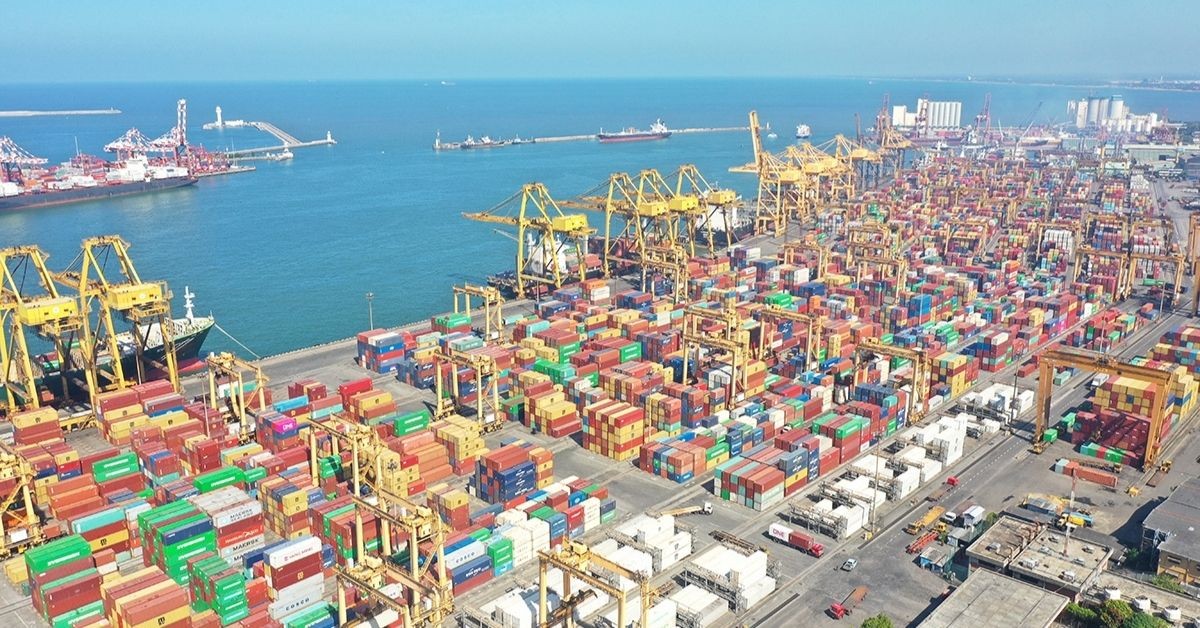The Sri Lankan Parliament, on May 19, 2021, passed the Colombo Port City Economic Commission Bill. After the Bill becomes an Act, China will obtain an additional 269 hectares of reclaimed seafront off the Colombo port in the country’s south-west with little oversight from the Sri Lankan government.
Colombo assumes importance for India since almost 70 per cent of all container cargo for and from India is trans-shipped there, mostly at Chinese operated terminals. This not only has security implications, but also results in delays in transit and loss of revenue for India. New Delhi, conscious of this serious lacunae, seeks to create trans-shipment hubs in south India; which however will have a gestation period.
Further, India, Japan and Sri Lanka had signed a deal in 2019 for India’s Adani Ports Group to lead the development of Colombo’s East Container Terminal (ECT). However, labour protests, most certainly China orchestrated, have put a spanner in the works. Sri Lanka however has offered India the West Container Terminal for development in lieu, to which India is yet to respond. China had earlier secured the use of Hambantota port on a 99 year lease from Sri Lanka as a collateral for a huge outstanding loan. Leasing of Hambantota and the Port City project makes it almost certain that the Chinese People’s Liberation Army (PLA) will soon have a presence in these waters which may include bases for warships/submarines as well as a staging post to sustain longer naval deployments in the Indian Ocean.
Therefore, a permanent PLA (navy) presence in the Indian Ocean will be worrisome for India’s national security.
The Chinese navy will be able to easily monitor Indian naval activity in the Indian Ocean. It will certainly inhibit the Indian Navy’s deployment options and neutralise the geographical advantage it enjoys in these waters. Now, India will have to adapt to the presence of its principal adversary practically in its backyard and shape its preparedness and response accordingly. Moreover, a joint Sino-Pakistan axis, with China also sitting in Gwadar, will be a major problem for India.
The Chinese will no longer be constrained by the tyranny of distance, from the South China Sea to the Indian Ocean. China imports about 80 per cent of its oil from West Asia which passes south off Sri Lanka before moving on toward the Malacca Straits. With Beijing’s first overseas base in Djibouti and a foothold in Sri Lanka, China is better placed to protect her sea lanes of communication.
India will need to continue to work on the Kankesanturai port in Jaffna and the oil tank farm project in Trincomalee to ensure that China does not make any further inroads in Sri Lanka. Other measures will include militarisation of the Quadrilateral Security Dialogue and countervailing bases in other South-East Asian countries such as Vietnam.
The India-Sri Lanka relationship is vastly different from China-Sri Lanka ties. India shares an ethnically blurred maritime border with Sri Lanka owing to Tamils across either side of the Palk Straits and is, therefore, involved with the island nation’s domestic politics.
Also, the majoritarian Sinhalese community is unhappy over perceived Indian interference in Sri Lanka’s internal affairs. China’s involvement in Sri Lanka’s domestic dynamics differs from India’s — due to its distance from the island and absence of ethnic linkages with its people.
Strategic significance
Sri Lanka, located at the crossroads of global shipping lanes, enjoys an unrivalled strategic significance in the Indian Ocean region. This geo-political reality has a bearing on Indian security interests.
China’s military ties with the Sri Lankan government have grown over the past four decades, regardless of which political party was in power. In the post-Sri Lanka civil war (1983-2009) phase, during which India backed the Tamil secessionists, China gained limited military influence in Sri Lanka. For instance, China gifted a naval frigate to the Sri Lanka navy after then-President Maithripala Sirisena’s visit to Beijing in May 2019.
Importantly, it also included finalisation of security protocols and a $14 million deal for counter-insurgency surveillance technologies. The December 2004 Tsunami and the Final War against LTTE (April 2006-May 2009) gave China the platform to achieve its mission.Chinese presidents and premiers since 2001, after their visits to Sri Lanka, have made many joint statements which allude to their entry into the island state’s infrastructure sector. In a sense, the proposed Colombo Port City with greater devolution of Chinese interests is akin to what Beijing is doing to Hong Kong.
Today, the ruling Rajapaksa clan shares an excellent personal rapport with Chinese President Xi Jinping. For India, the Chinese presence in the island nation is not just a worry, but amounts to a threat considering Beijing is known to employ subversion, espionage and sabotage to promote its national interests and objectives. Accordingly, Indian foreign policy towards Sri Lanka, as part of its ‘Island Diplomacy’, will have to evolve in tune to the emergent realities and threats.
The writer is Secretary, Institute of Contemporary Studies, and a former Professor of International Relations and Strategic Studies, Christ Deemed to be University, Bengaluru
Source : The Hindu Businessline







